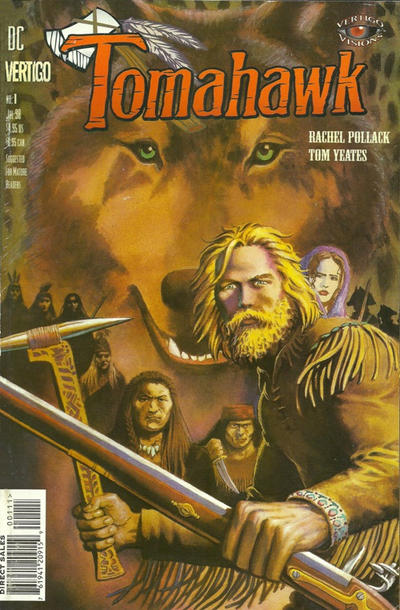For information on stopping the spread of COVID-19, and on what to do if you are quarantined, have a look at the World Health Organization site.
I've written of today's featured creator, the fantastic Ms. Rachel Pollack. I've always said her run on Doom Patrol is severely underrated, and the fact of her being a major creator during the early Vertigo years and also being a trans woman working in comics at that time is one of the more significant moments, to me, in the history of our beloved medium.
That said, and as I noted when I read Ms. Pollack's other entry into the Vertigo Visions series, I wasn't a huge fan of this story. Actually, that's not entirely accurate. I enjoyed the story - it's a hallucinatory and twisting tale of Brother Power and his corruption by ever more brutal media, and is perhaps slightly dated in that it was written before the explosion of new media in our culture. Though in some ways that also serves the story of Brother Power, who was created as a weird hippy superhero in 1968, and who was virtually absent from the DCU in the intervening 30ish years. What I think is the problem is that it's a difficult story, as is Tomahawk, and difficult stories need to be re-read. Mike Allred is a master of metaphorical storytelling, as evidenced in his adaptation of The Golden Plates, and Ms. Pollack's deep understanding of Tarot and the way images can shape our futures combines with her expression of transness in her work to produce something remarkable. But definitely not something easy.
Vertigo, more and more, is proving itself an imprint to which one needs to come back, over and over. There was really some very sophisticated storytelling going on, especially in the somewhat heady early days. These are very weird comics, and very important.
More to follow.
Further Reading and Related Links
Vertigo Comics were one of the reason I got back into comics. I think their early period is really some of the absolute best comics gets.

